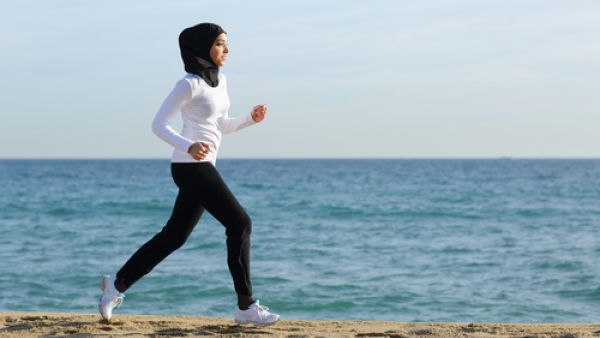Exercising during Ramadan can provide health benefits that work with fasting
Benefits of healthy fasting
Healthy fasting has been shown to have many benefits including helping lose weight, preventing the onset or progression of diabetes, lowering blood pressure and reducing risk of heart disease and stroke. Many people think that they can’t be physically active when fasting, but this is simply not true. There are safe ways to exercise during the holy month.
Good time to gain control of weight
Combining low-impact exercise with fasting helps lose more weight than fasting or exercising alone. Also, by being active during Ramadan, we can increase self-discipline, which can help us be more conscious of what and how much we eat.
Just 30 minutes per day will suffice
It is best to avoid strenuous exercise during the fasting hours. Intense workouts can lead to dizziness and nausea. Instead of lifting heavy weights or long distance running, consider going for a walk, lifting lighter weights, or doing some stretches. Anything that gets the body moving is exercise and just 30 minutes per day can benefit our health.
Health and exercise while fasting
If we choose to do exercise, we must make sure we stay hydra-ted by drinking plenty of water during non-fasting hours
It’s important to stay active with low-impact exercise immediately before or a couple of hours after breaking the fast
We must ensure we get enough sleep or consider napping to allow the body to rest and prevent fatigue
Intense workouts such as heavy weight lifting, long-distance running, or intense speed or agility drills are best avoided
Nutritious meals at iftar and suhoor help to keep the body energised during the fasting period
For those having an existing health condition, it’s important to talk with the doctor before starting an exercise routine. Those who already exercise regularly may need to modify the current programme.









